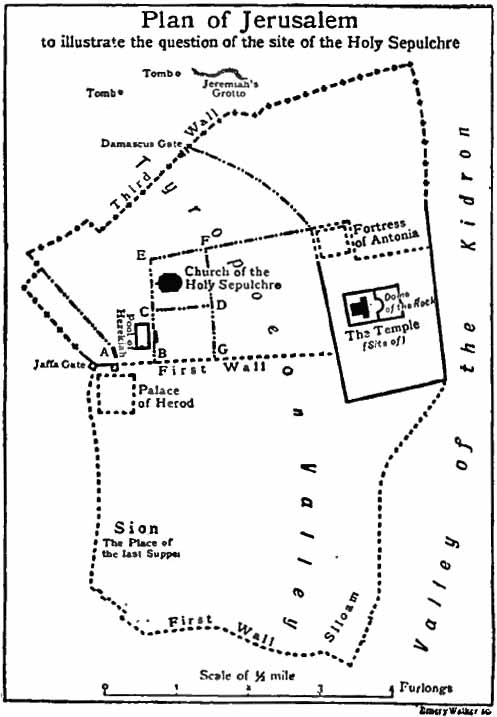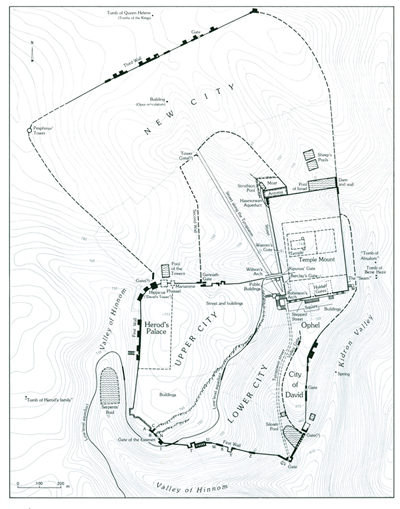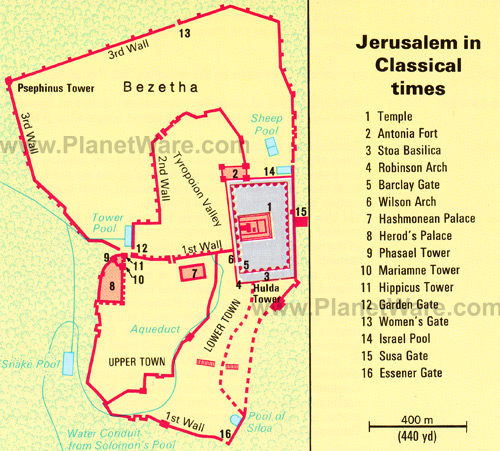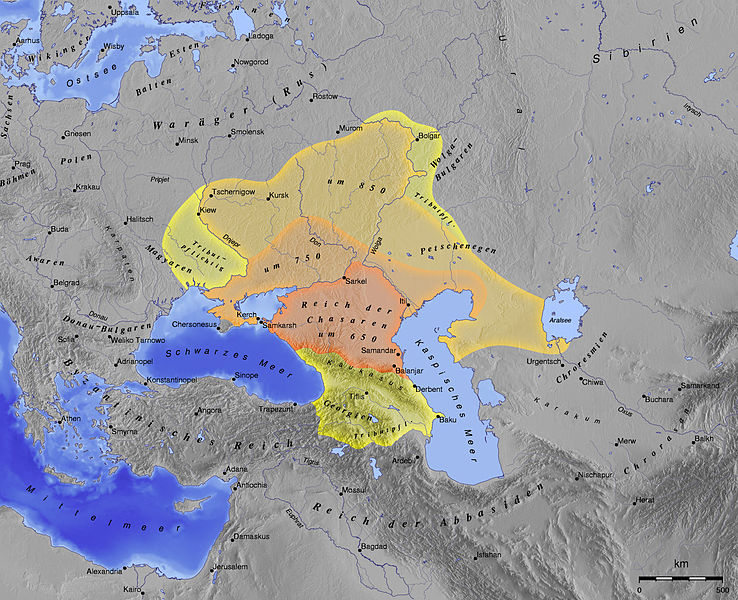
 |
Freethought & Rationalism ArchiveThe archives are read only. |
|
|||||||
|
|
Thread Tools | Search this Thread |
|
|
#1 | |
|
Veteran Member
Join Date: Jun 2010
Location: seattle, wa
Posts: 9,337
|
I am not an expert on the city of Jerusalem (other than to point out it is not mentioned by name anywhere in the Pentateuch). Yet in another thread I stumbled across a reference that pointed out to the fact that coins were found under the Western wall dating to 17 CE. If coins are found in a well in Nazareth this proves that the city was ancient but if coins are found which contradict Josephus's account of Herod's construction we find ways of 'rescuing' his original narrative. http://jonathanturley.org/2011/11/29/42155/
I just sent an email to the archaeologist who found the coins and this is what he said to my question about whether his findings 'disproved' Josephus: Quote:
Here is the point of my thread. American Jewish scholars in my experience tend to be more secular and skeptical. But there is a sense that archaeology is being used to further enhance Israeli national identity. We have to remember that from the Muslim perspective Jews are not Semites but Khazar converts from Russia. They have no blood ties to the land. It is the modern equivalent of Europeans settling the Americas. This is not a completely accurate portrayal of the DNA evidence. But with that said I get a sense at least that archaeology is being used to support the legitimacy of the state of Israel. It is not simply a 'scientific' interest - i.e. a disinterested application of scientific research. There does seem to be an increasing religious and political dimension to this research and I wonder if others would agree. For instance American evangelicals have taken a profound interest in supporting the 'history of the Bible.' Yet I have also seen Josephus used as a kind of 'road map to history' even when - as is the case here - he is apparently disproved by archaeological evidence. I have read and reread the account of Herod's building projects in Josephus. I spent a few hours reading centuries of 'acknowledged' interpretation before the recent archaeological evidence started coming in. It was clear to previous generations that Josephus said that Herod built the Western wall. Isn't this an example of 'rescuing' Josephus but moreover for the specific purpose of rescuing Jewish identity in the Holy Land? |
|
|
|
|
|
#2 | ||
|
Veteran Member
Join Date: Mar 2009
Location: England
Posts: 2,527
|
Agrippa I (41 -44 c.e.) not only repaired the walls of Jerusalem but also made those walls higher and ................wider.....Thus, any coins found under the walls of Jerusalem, dated to 17 c.e., are quite in order! The walls were made wider than originally...................
Quote:
 Artaxerxes I of Persia Artaxerxes I of PersiaArtaxerxes I. 465 BCE to 424 BCE. [T2]Nehemiah 2:1. In the month of Nisan, in the twentieth year of King Artaxerxes Neh. 2:5. I said to the king, “If it please the king, and if your servant has found favor before you, send me to Judah, to the city of my fathers’ tombs, that I may rebuild it.” Neh: 2:17. Then I said to them, “You see the trouble we are in, how Jerusalem lies in ruins with its gates burned. Come, let us build the wall of Jerusalem, that we may no longer suffer derision.” Neh: 6:15. So the wall was finished on the twenty-fifth day of the month Elul, in fifty-two days.[/T2] It's Agrippa I that Josephus is indicating, with his story of the re-building of the walls of Jerusalem set around 490 years since Nehemiah's rebuilding of those walls, as the Jewish messiah figure, - not his son, Agrippa II. Quote:
The Josephan writing is what it is - a mix of history with pseudo-history, a mix of history with prophetic interpretations. To untangle that mix requires a strong historical approach - but an approach that does not seek to discredit the writing in and off itself. It is what it is. Sure, we want accurate historical reporting - but our reporter is not just a historian. The Josephan writer is a prophetic historian. Yes, we need to untangle the mix of history and prophetic interpretations - but to discard the Josephan prophetic implications is to throw out the baby with the bathwater. Especially so if we are on the trail for early christian origins... |
||
|
|
|
|
#3 | ||
|
Veteran Member
Join Date: Jun 2010
Location: seattle, wa
Posts: 9,337
|
So getting back to the OP - does Josephus say that Herod the Great built the walls where the coins were found? Everyone seems to agree that he does. The explanation of Ronny and others is that he started building the walls and then 50 or 60 years later they were completed. Duane Roller in his 1998 book The Building Program of Herod the Great writes
Quote:
 Quote:
 How then is the account of Josephus 'upheld' by archaeology? It would seem it is not just a little wrong but completely wrong. The Second Wall - or at least the part where the coins were discovered - didn't even exist until 17 CE.  
|
||
|
|
|
|
#4 |
|
Veteran Member
Join Date: Dec 2003
Location: Philadelphia, PA
Posts: 3,387
|
You are suggesting that a historian you fervently believe to be a forgery is considered reliable to further the political legitimacy and territorial claims of the modern state of Israel?
 This is an argument I am going to run away from very VERY fast. <edit for consistency> |
|
|
|
|
#5 |
|
Veteran Member
Join Date: Jun 2010
Location: seattle, wa
Posts: 9,337
|
I am suggesting that archaeology conducted in the state of Israel has become politicized. Not a new point but it goes one step further - Josephus has become the de facto witness for the legitimacy of the state. The same would have undoubtedly have been true if Justus of Tiberias's chronicle had survived. It isn't an argument against Josephus. It reminds me of the old book a Canticle for Leibowitz or the shoe in the Life of Brian or the gospel for Christians. In short, Josephus has become akin to 'the gospel' of the Jewish people. This process was started long before the state of Israel. The Yosippon originally held this role in Eastern Europe. The adoption of the Greek text only 'made respectable' a trend that existed long before 1948.
|
|
|
|
|
#6 |
|
Veteran Member
Join Date: Dec 2003
Location: Philadelphia, PA
Posts: 3,387
|
This is me NOT criticizing the state of Israel in any way and refusing to acknowledge that any one else has, so don't go using MY stolen passport as a false identity for an assassin sent to kill some Gulf Arab Prince, Mossad!
<edit for consistency> |
|
|
|
|
#7 |
|
Contributor
Join Date: Jun 2000
Location: Los Angeles area
Posts: 40,549
|
Some posts have been removed. Please do not discuss moderation issues in the thread.
|
|
|
|
|
#8 |
|
Veteran Member
Join Date: Jun 2010
Location: seattle, wa
Posts: 9,337
|
I think someone could write a very interesting paper on the relationship between Josephus and the Jewish people. At one time, likely during the Jewish Khazar Empire (618–1048):
 The Jewish people came into contact with an edition of the Latin Hegesippus text of Josephus which became the ancestor to both the Slavonic and the Yosippon (the Hebrew translation). This text was translated into Hebrew but with the addition of many rabbinic conceptions woven into the narrative including the concept of Agrippa as the messiah. I forget when but at something like the sixteenth century the text was drawn into widespread usage by Jews especially in Russia and the eastern Slavic countries. It became closely aligned with 'Zionism' (i.e. the hope for resettlement in the Holy Land). But the Jewish people were still referencing him as 'Joseph ben Gurion' and proudly arguing that their text of Josephus was preferable to the Greek text in the hands of Gentiles. As more Jews entered scholarship they quickly realized that there were many, many versions of the Yosippon and that there was an obvious expansion process happening. It quickly became acknowledged by the more enlightened that their treasured Yosippon was a hybrid text and likely inferior to the Greek version which actually survived in later manuscripts (mostly from the 14th century) than the Slavonic original behind the Yosippon. It took most of the middle of the twentieth century for Jews to come to prefer the Greek Josephus to their own inherited text. One of the reasons why you don't see a translation of the Yosippon into English is because most Jews are embarrassed by the text. Nevertheless in the last generation after the death of Flusser a strange new phenomenon has occurred - the complete veneration of Josephus in Israeli circles albeit by means of the Greek text. |
|
|
|
|
#9 |
|
Veteran Member
Join Date: Nov 2005
Location: United Kingdom
Posts: 3,619
|
.png)
|
|
|
|
|
#10 |
|
Veteran Member
Join Date: Dec 2003
Location: Philadelphia, PA
Posts: 3,387
|
 And the Khazars? I'll just be over there in a totally different website... And the Khazars? I'll just be over there in a totally different website...
|
|
|
| Thread Tools | Search this Thread |
|